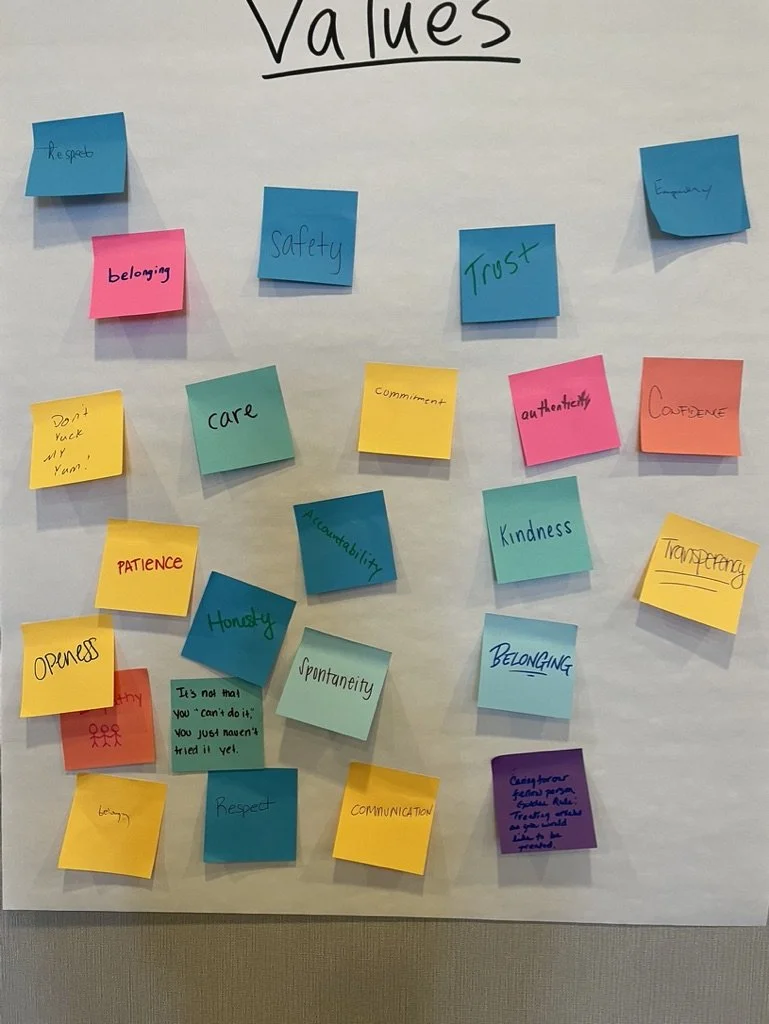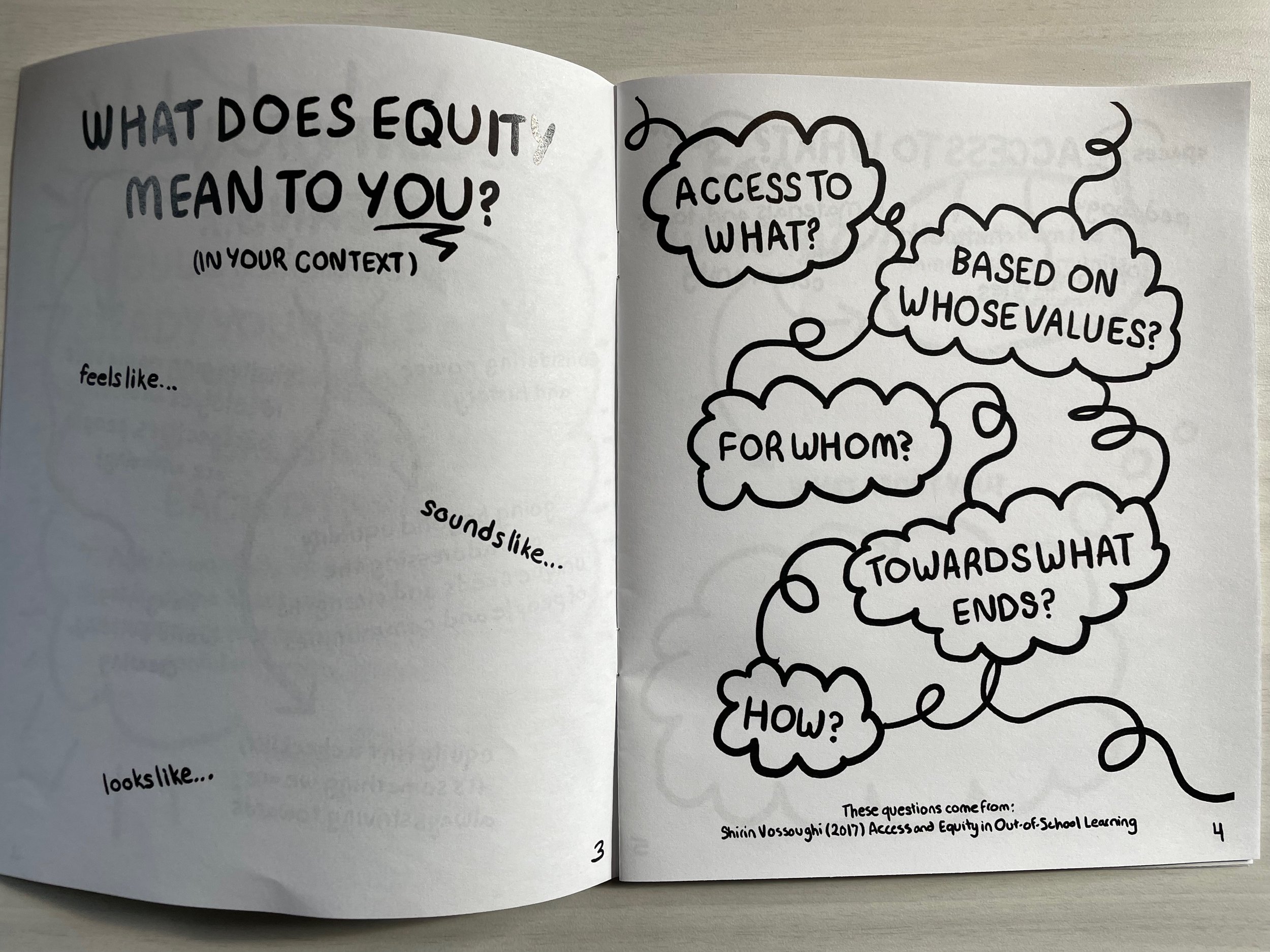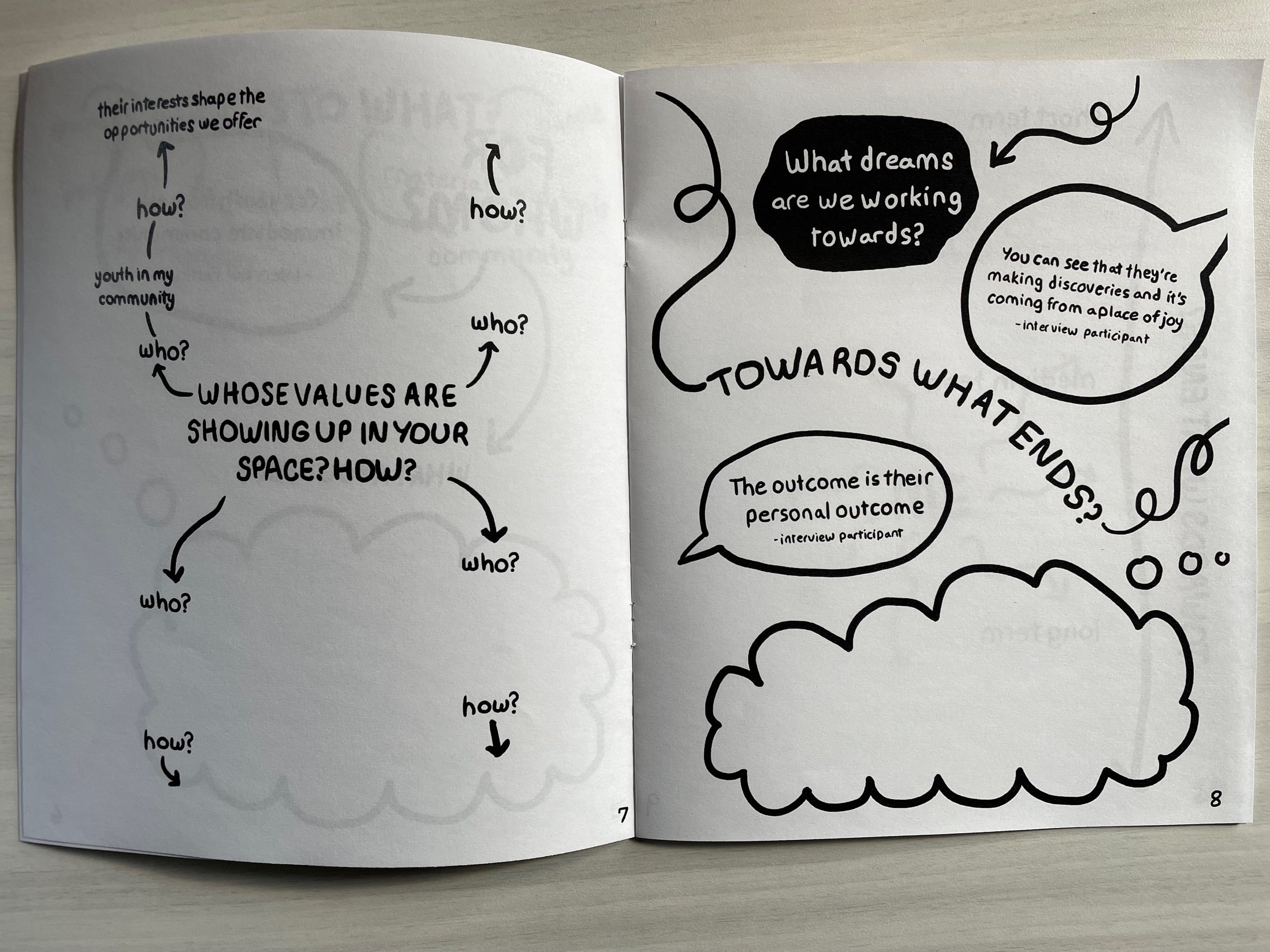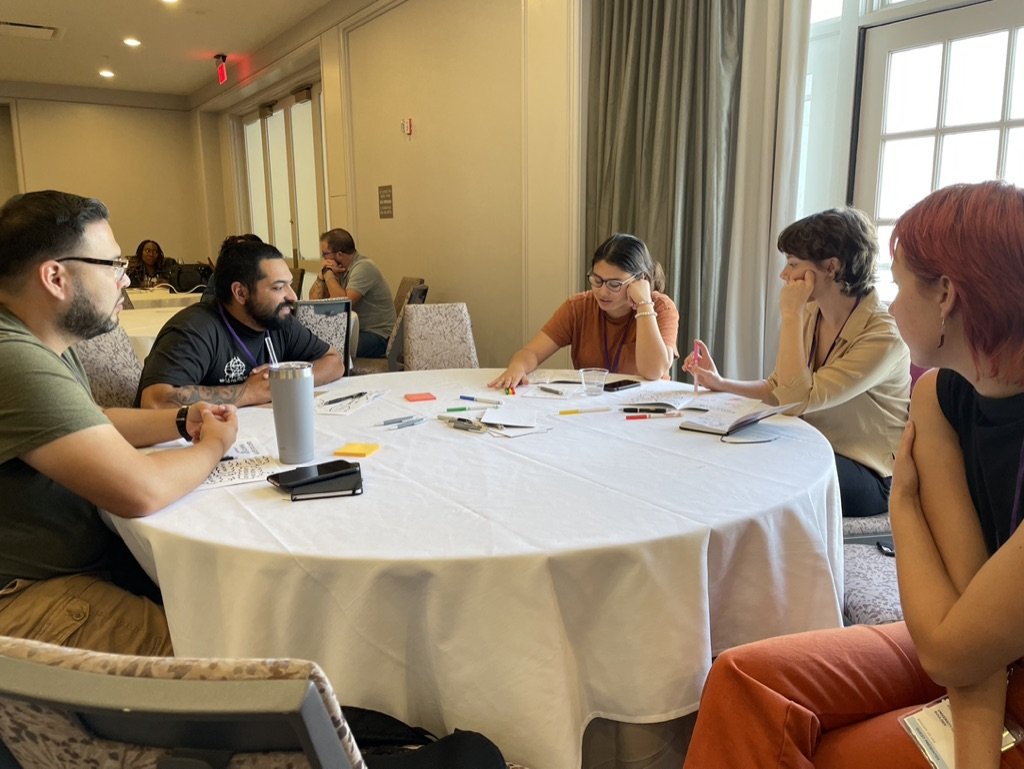Our Facilitating Computational Tinkering (FCT) project team went to the Clubhouse Network Annual Conference in New Orleans from Sept 12-14. The conference is an annual gathering of coordinators, community-based organizations, and other collaborators to connect, share, learn from each other, and imagine new possibilities for their spaces and communities. We facilitated a session called “Equity as a Moving Target.” This session builds on our research from the FCT project where we have been examining the differing conceptions of equity and the complex practices that informal learning educators, or facilitators, have to negotiate to orient their work towards equity. As we’ve been conducting our research, we’ve found that connecting and sharing our work in progress with educators deepens and helps us focus on what matters to educators — and what implications it has for equity-oriented researchers who focus on informal learning environments.
In our session, we wanted to surface facilitators’ conceptions of equity and reflect on how it appears in their practice. Rather than presenting our research and giving questions to discuss in small groups, we wanted to create a resource that captured some of the spirit of creativity and joy that we feel whenever we are with Clubhouse coordinators. Inspired by the Making Interactive Zine we saw from the the Children’s Museum of Pittsburgh and Bubbler at Madison Public Library, we designed a zine that could act as a resource and a design journal. Celeste, Ronni, and I worked collaboratively to develop the content of the zine from our research work and Celeste used her design powers to illustrate the zine. Throughout the zine, we feature excerpts and stories from our interviews with facilitators to ground and situate the reflective prompts.
As people streamed in, we asked people to use post-its on their table to create self-portraits and write in one value they try to incorporate into their space. We wanted to get facilitators in the spirit of expressing themselves through drawing and writing as well as grounding us in our values prior to working with the zine. We were inspired by the way Jaleesa Trapp starts her workshops by asking people about their values — rather than prioritizing titles and organizations which can create hierarchies. We were fortunate to have about 25 people attend, which included Clubhouse coordinators, their community-based organization representatives, Clubhouse Network staff, and other collaborators.
Participants each drew a representation of themselves or a “self-portrait” on a post-it.
Participants shared one value they try to incorporate into their space such as belonging, trust, safety, openness, and respect.
After briefly describing the FCT project, we introduced the zine and read the first page out loud which has a quote from Donna Mejia and a second page that shared what our research team thinks about equity. As Ronni shared this quote, she emphasized that we approach this work with humility and with an interest in learning from one another to strive towards cultivating more equitable learning environments.
Then, we asked participants to reflect on what equity means to them (feels like, sounds like, looks like). After some quiet reflection, they shared what they wrote in small groups, and later in the larger group. Some participants chose to communicate their thoughts about equity with metaphors like “feels like a cozy blanket” or “sounds like a noisy room filled with laughter and all participating.” Some drew images like a mature tree helping a sapling grow, and others responded with more detailed written descriptions.
Afterwards, participants engaged with the rest of the zine on their own and in their small groups. The zine features different prompts to help facilitators reflect as well as four questions posed by Dr. Shirin Vossoughi that aim to push educators and researchers to think about equity beyond access (Access to what? For whom? Based on whose values? Towards what ends?). We found Dr. Vossoughi’s questions helpful in our research to distill facilitators’ conceptions of equity beyond broad descriptions of what equity meant to them, and so we wanted to feature these questions in the zines as questions for facilitators to directly engage with. It was helpful for me and Ronni to walk around and talk more closely with Clubhouse coordinators — to learn more about what they did in their spaces and to learn more about how we could make the zine useful and clear.
We ended the session hearing more from participants about their reflections as well as feedback on the zine activities. Participants shared positive feedback about the design of the zine — that even in black and white, there’s much that can be conveyed through design. Some shared they appreciated being able to think about what equity meant to them in embodied and sensory ways (looks like, feels like, sounds like) rather than staying in their head about it. There was a wonderful discussion between participants about managing their personal values in their work. Some were cautious about being open with their values with youth so that they did not offend others. While another participant said that it was important to her to be transparent about her values, especially as an educator dedicated to social justice.
Towards the end of the session, we reflected with some participants on how engaging with the zine helped to surface conceptions and beliefs, but the zine alone did not challenge or push people further. Instead, participants were learning from the small group discussions as Clubhouse coordinators and CBO staff shared their practices in response to others’ experiences, questions, or challenges. Some participants wanted additional pages to create an asset map of their communities, to consider the historical context of their work, and to revisit what equity means to them again at the end of the zine. Other participants shared how necessary it is to start with some shared language and understanding. We responded that part of our work has been to establish some shared language in our own partnerships and collaborations in the FCT project — and to surface where there is alignment and difference. Something we shared with the group and what we’re continuing to wonder about is: What sorts of commitments and alignments are necessary in a collaborative effort across organizations and what differences are necessary based on contextual differences in the communities being served and organizational goals and constraints?
We learned so much trying out this zine for the first time at the Clubhouse Conference. And it was beautiful seeing their zines come to life with color, stories, and imagery. We look forward to iterating on it based on their feedback and trying it out with more of our project partners. We look forward to sharing what we learn as we progress.







